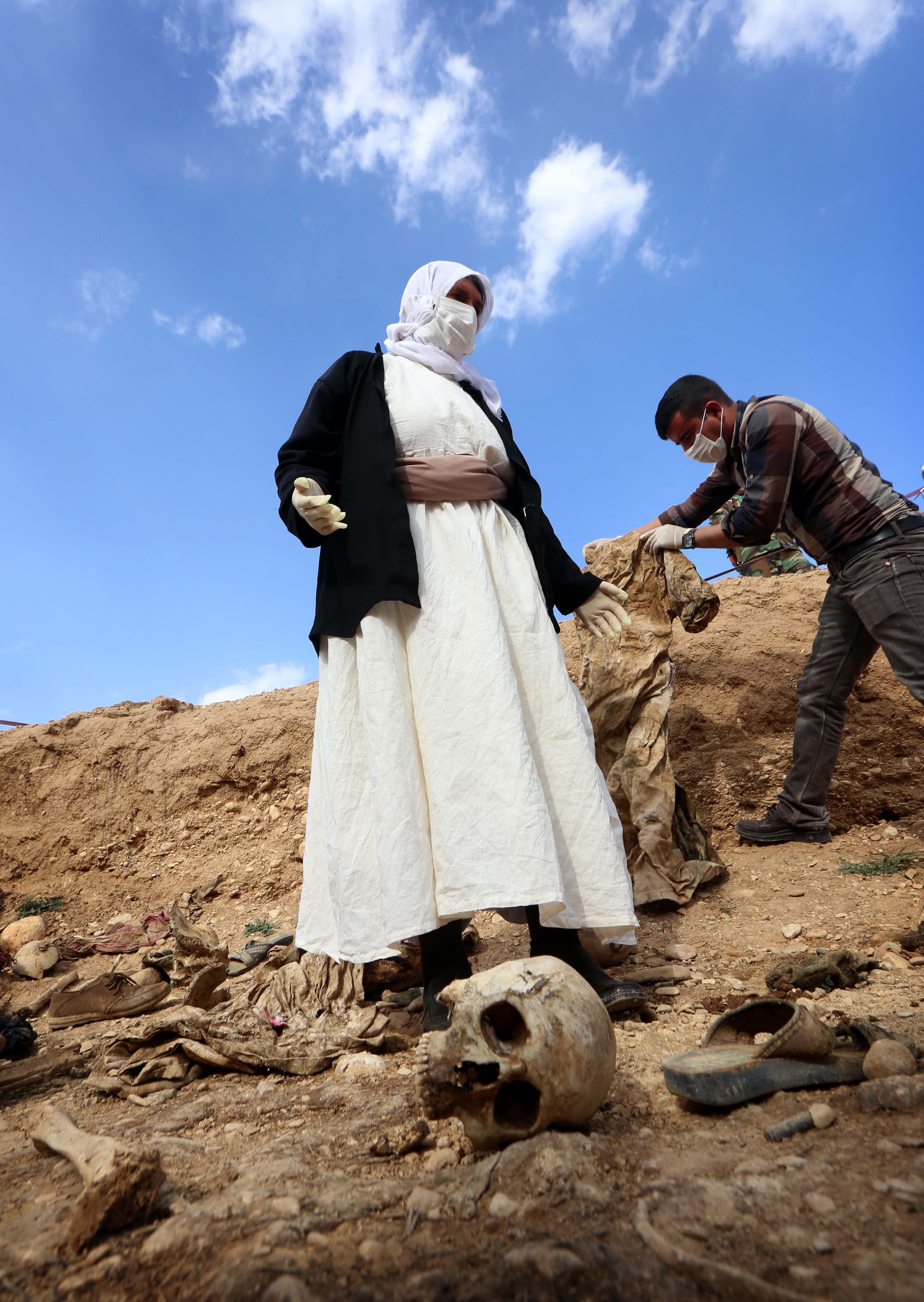A report released last month by the U.N. Assistance Mission in Iraq and the U.N. High Commissioner for Human Rights concluded that actions by ISIS “may amount to war crimes, crimes against humanity, and possibly genocide.” It is well-documented that ISIS has committed sickening human rights violations, including the slaughter of civilians, the taking of sex slaves, and the abuse and torture of children. The group is deliberately targeting specific ethnic and religious groups, including Christians, Yazidis, and Shiites. ISIS’s actions against the Yazidis, in particular, would certainly seem to fit the international legal definition of genocide. The question is, beyond efforts already underway to destroy ISIS, what should the international community do with this knowledge?
There have been an increasing number of calls for ISIS leaders to be prosecuted by the International Criminal Court at the Hague. Today, the ICC’s prosecutor, Fatou Bensouda, addressed the issue, saying that that while ISIS has committed “crimes of unspeakable cruelty,” her jurisdiction is too narrow to launch a prosecution. Neither Iraq nor Syria, where the crimes in question have taken place, is a party to the Rome Statute, which established the ICC. Since most of the crimes in question took place in those countries and most known ISIS leaders are thought to be citizens of them, they fall outside the court’s jurisdiction. Foreign fighters from ICC member countries—the infamous British executioner Mohammed Emwazi, aka “Jihadi John,” for example—could theoretically be tried by the ICC.* The court can start an investigation of crimes by outside member states if the situation is referred to it by the U.N. Security Council, so Bensouda’s remarks could be read as something of a hint to the members of the council.
In the U.N. report, High Commissioner Zeid bin Ra’ad recommends referring ISIS to the ICC. The French government, a permanent member of the Security Council, went on the record in late March supporting the idea. In the New York Times last week, former U.S. State Department legal adviser John Bellinger made a compelling case for referral, writing, “Such a request would not only register international opposition to the atrocities; it would also help lay the groundwork for future prosecutions.”
But such a referral will be tricky. For one thing it requires the support of permanent council members Russia and China, who, while not fans of ISIS, are also not fans of violating national sovereignty in the name of human rights. (Except when they are.) Russia and China went along with the referral of Libya to the ICC in 2011, but after what they see as a disastrous NATO military intervention there, it will be a tougher sell this time around.
Also, as Kevin Jon Heller, a professor of international criminal law at London’s School of Oriental and African Studies, explained in an interview, “The Security Council can’t just say that the court has jurisdiction over crimes by ISIS and nobody else. The Rome Statute is designed to prevent one-sided referrals.” That means that a referral would give the court jurisdiction over the conflict as a whole, including crimes committed by all sides. The Assad regime has been accused of gross human rights violations, including the massacre of civilians and the torture of children, but its patron, Russia, would be unlikely to agree to a measure that would open Syrian forces up to the threat of prosecution.
U.S.-backed rebel forces in Syria have been accused of abuses including kidnappings and torture. The Shiite militias fighting ISIS in Iraq have been accused of serious retaliatory violence against Sunni civilians, bordering on ethnic cleansing. These crimes may not rise to the level of ISIS’s very public “theater of cruelty,” but four years since the fighting began in Syria, there aren’t a lot of clean hands in this conflict.
Heller, who’s skeptical of the idea of ICC referral, notes that ISIS is a rare nonstate actor without a state supporting it and that most of the group’s crimes could be prosecuted through various countries’ domestic legal systems. “If the United Kingdom captured Jihadi John, it’s perfectly capable of prosecuting him. France and Germany could prosecute members of ISIS, the United States could under its laws,” he says. “So I’m not sure why you would need the ICC to step in and do what states can already do. The ICC should be limited to those situations where states are not willing to prosecute.”
It’s possible that an ICC indictment, particularly for genocide, the most serious crime under international law, could have a galvanizing effect on the countries battling ISIS and lead them to step up their efforts to degrade the group and protect civilians, but for now, it’s hard to see questions of legal jurisdiction as anything but secondary to the task at hand. As Heller notes, “The big problem is capturing the leaders, not prosecuting them.”
*Correction, April 9, 2015: This post originally misstated that the ICC requires a referral from a member country to investigate a citizen of that country. The ICC already has jurisdiction over the citizens of its member countries.
